Butler Series 2025-2026: Religion and Pop Culture
From movies and video games to music and literature, religion appears all throughout popular culture as artists reflect on the values and existential questions that shape us.
This year’s seminar explores this intersection through public lectures discussing religious epics onscreen (including The Chosen and The Ramayana), Contemporary Christian Music, graphic novels and comic books, fantasy, and superhero narratives.
No matter the TV shows, genres of music, or novels you enjoy most, this year’s public lecture series seeks to enhance your enjoyment and appreciation of media by inviting you into new perspectives on pop culture.
All events are 7:00–9:00 PM.
Free and open to the public. For more information about the series and virtual attendance, visit butlerartscenter.org.
For accessibility information or to request disability-related accommodations, please visit butler.edu/event-accommodations.
Butler Cultural Requirement (BCR)
Sacred Stories on TV
September 16 | Reilly Room
7:00–9:00 PM
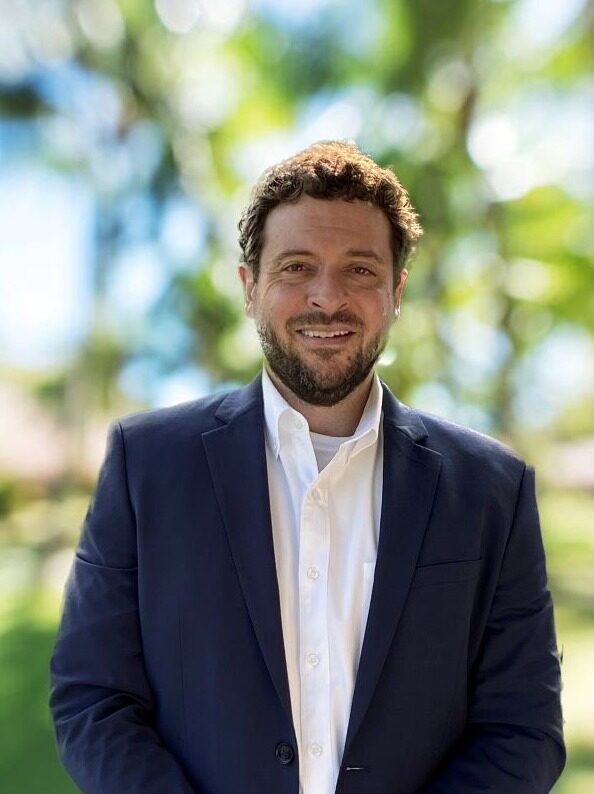
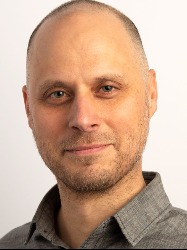
Featuring Keynote speaker Dr. Justin Henry, who is Assistant Professor in the Department of Religious Studies at the University of South Florida. He has published on aspects of Pali, Sinhala and Tamil religious literature and his first monograph, Ravana’s Kingdom: The Ramayana and Sri Lankan History from Below was released by Oxford University Press in 2022. Butler’s Professor of Religion Dr. Chad Bauman will serve as respondent.
Justin Henry is Assistant Professor in the Department of Religious Studies at the University of South Florida. He has published on aspects of Pali, Sinhala and Tamil religious literature and his first monograph, Ravana’s Kingdom: The Ramayana and Sri Lankan History from Below was released by Oxford University Press in 2022. He is currently working on collaborative project involving new translations of the “Sigiriya graffiti,” in addition to a general audience book on the “many Ramayanas” of India and beyond.
Missed the lecture? View the recording.
Evangelical Pop Music
October 14 | Reilly Room
7:00–9:00 PM
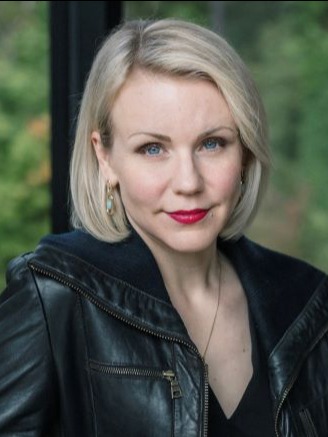
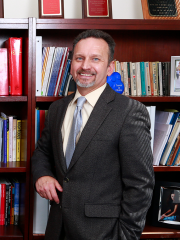
Featuring Keynote speaker Dr. Leah Payne, an award-winning historian, Professor of American Religious History at Portland Seminary, and Affiliate Scholar with the Public Religion Research Institute (PRRI). She is the author of God Gave Rock and Roll to You: A History of Contemporary Christian Music. Butler’s Professor of Religion Dr. Jay Howard, Interim Provost & Executive Vice President will serve as respondent.
Leah Payne is an award-winning historian, Professor of American Religious History at Portland Seminary, and Affiliate Scholar with the Public Religion Research Institute (PRRI). She holds a Ph.D. from Vanderbilt University and her research explores the intersection of religion, politics, and popular culture. Payne is author of God Gave Rock & Roll to You: a History of Contemporary Christian Music (Oxford University Press, 2024), the 2024 Christianity Today book of the year for History and Biography, and co-host of Rock That Doesn’t Roll, a Public Radio Exchange (PRX) podcast about Christian rock and its listeners. She also hosts Spirit & Power, an Axis Mundi Media podcast about politics and Pentecostal and charismatic Christians, and is co-creator of Weird Religion, a religion and pop culture podcast. Her writing and research has appeared in outlets such as The Washington Post, BBC Radio, NBC News, Religion News Service, Harper’s Magazine, The Economist, and Christianity Today.
Missed the lecture? View the recording.
Sexual and Spiritual Identity in Comic Books
February 10 | Reilly Room
7:00–9:00 PM
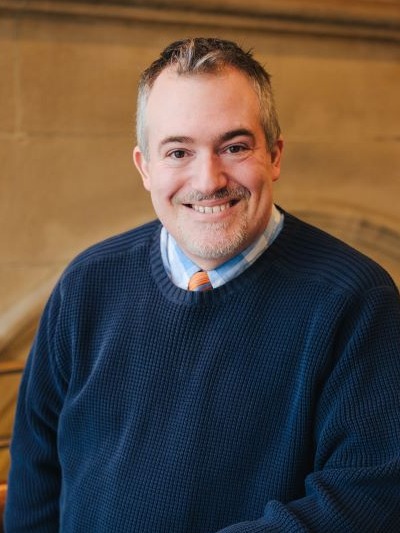
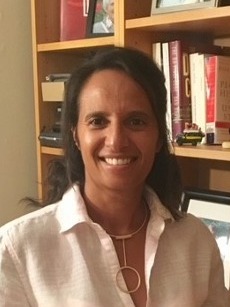
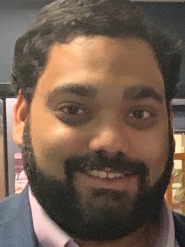
Featuring keynote speaker Dr. A. David Lewis, a comic creator as well as an academic, is Assistant Professor of English & Health Humanities at the Massachusetts College of Pharmacy and Health Sciences. Lewis is author of American Comics, Religion, and Literary Theory: The Superhero Afterlife (nominated for an Eisner Award), as well as co-editor of both Graven Images: Religion in Comic Books and Graphic Novels and Muslim Superheroes: Comics, Islam, and Representation. Butler’s Dr. Ouafaa Deleger (Instructor; French) and Dr. Syed Zaidi (Lecturer; Philosophy and Religion) will each serve as respondents.
A. David Lewis, PhD is an Eisner Award nominee (2015) and judge (2023), as well as co-editor of both Graven Images: Religion in Comic Books and Graphic Novels and Muslim Superheroes: Comics, Islam, and Representation. A founder of Comics Studies library collections at both Boston University and MCPHS University, Dr. Lewis is an Associate Professor of English and Health Humanities as well as a member of the Center for Health Humanities. His teaching and research there focus on Graphic Medicine, both the depiction of cancer in comic books and graphic novels as well as the health impacts of loneliness. Finally, he is inaugural co-editor of the Graphic Medicine Review journal and the acclaimed author of such comics as The Lone and Level Sands and the 100th anniversary comics adaptation of Kahlil Gibran’s The Prophet.
The event is made possible with co-sponsorship from the Muslim Studies Endowment.
Fantasy and Religion
March 24 | Reilly Room
7:00–9:00 PM
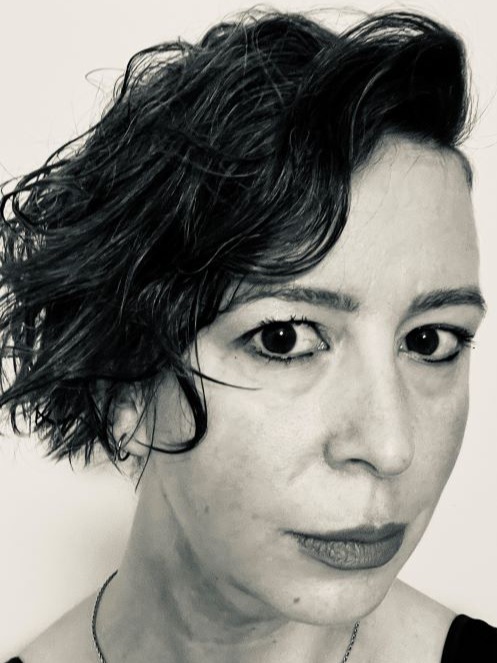
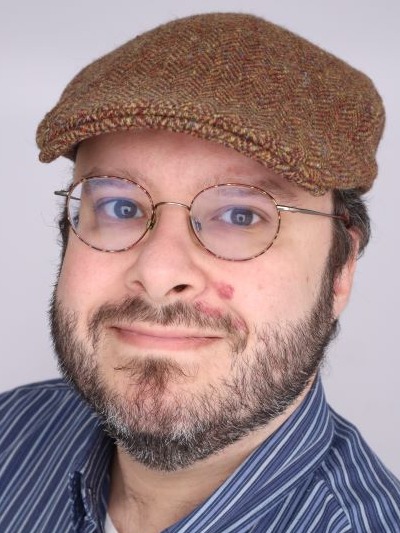
Featuring keynote Dr. Alana Vincent Associate Professor in the History of Religion at Umeå University. She has published widely on topics relating to art, literature, and religion, including Culture, Communion and Recovery: Tolkienian Fairy-Story and Interreligious Exchange (Cambridge Scholars, 2014), and is the editor of Bloomsbury Studies in Popular Fiction and Religious Dynamics. Butler Professor Michael Aronson (Lecturer, Pulliam School of Journalism and Creative Media) will serve as respondent.
Alana M. Vincent is Associate Professor in the History of Religion at Umeå University. She has previously held posts at the University of Chester, University of Glasgow, and Swedish Theological Institute, Jerusalem. She has published widely on topics relating to art, literature, and religion, including Culture, Communion and Recovery: Tolkienian Fairy-Story and Interreligious Exchange (Cambridge Scholars, 2014), and is the editor of Bloomsbury Studies in Popular Fiction and Religious Dynamics.
For many years Butler University has sponsored the Butler Seminar on Religion and Global Affairs. In 2003, the Lilly Endowment Inc. funded the creation of The Compass Center at Butler University which now sponsors the Butler Seminar. Below is a selection of past seminars in the form of the original brochures that were created for each event.
World Christianity in the New Century, 1999–2000
Religion and Law at Home and Abroad, 2003–2004
Religion and Science, 2004–2005
Religion and Media, 2005–2006
Religion and the Corporation, 2006–2007
Secularism and Religion in Global Perspective, 2007–2008
Darwin, Religion and Society, 2008–2009
Jerusalem: Traditions, Realities and Prospects, 2009–2010
Religion, Peacemaking and Conflict, 2010–2011
Global Christianity in the 21st Century, 2011–2012
Religion and Global Health, 2012–2013
Freedom of Expression and Religion, 2013–2014
Religion and Reconciliation in Global Perspective, 2014–2015
Religion, Race and Culture, 2015–2016
Religion and Trans Lives in a Global Perspective, 2016–2017
Religion, Refugees, and Migration, 2017–2018
Sacred Places: Intersections of Religion and Ecology, 2018–2019
Black Diaspora: Faith and Expressions—2023–2024
317-940-8253
The Seminar on Religion and Global Affairs is a program of The Compass Center at Butler University, promoting understanding of interfaith and intercultural relations through the discussion of religious issues in global perspectives.
After each event, video will be available on this website.
Previous Years’ Recordings
Religion and the Mind
This year’s Butler University Series on Religion and Society will focus on Religion and the Mind. We will explore questions like: What happens in the brain during meditation or prayer? Can AI understand or even participate in faith commitments? How do psychedelics impact religious experience? And what are the roles of religious traditions as resources for mental health? All events are free and open to the public and BCR credit for Butler students. Join us to explore these questions and more as we learn about the important intersections between religion and our understanding of the mind.
Mysticism and the Brain
What happens in the brain when a Buddhist monk meditates? When a Catholic nun prays? When an Evangelical Protestant loses themselves in singing? At the turn of the millennium Dr. Andrew Newberg represented a pioneering voice in a field that did not yet exist, namely the neuroscientific study of religious experience. Much has changed in the past 25 years, as neuroscientists and theologians have studied this aspect of human mental experience. In this first public lecture of the series, audiences will hear from Newberg as a leading expert in the field he helped create. Newberg is the author of the classic book Why God Won’t Go Away as well as multiple other studies including How God Changes Your Brain, Neurotheology, and The Varieties of Spiritual Experience.
View the Recording of Mysticism and the Brain
Religion and Artificial Minds
While many of us have long found AI fascinating, it is largely since the splash made by ChatGPT that the general public has become aware of just how much progress has been made in the realm of artificial intelligence. Few computer science departments include a theologian, which makes Dr. Anne Foerst and St. Bonaventure University quite unique. With degrees in both computer science and theology, Foerst is the author of the book God in the Machine: What Robots Teach Us about Humanity and God as well as numerous articles that explore key questions at this important and timely intersection.
View the Recording of Religion and Artificial Minds
Religious Experience and Psychedelics
It has been clear for decades that certain mind-altering substances can generate experiences that mirror those of mystics. Rev. Dr. Jaime Clark-Soles has done likewise. Clark-Soles is an American Baptist minister and Professor of New Testament, Altshuler Distinguished Teaching Professor, and Director of Baptist Studies at the Perkins School of Theology, Southern Methodist University. She also had the opportunity to participate in a psilocybin study. Since then, Clark-Soles has been speaking and writing not only about New Testament studies but the use of entheogens, which are more commonly known as psychedelics, as part of and within the context of a life of faith.
View the Recording of Religious Experience and Psychedelics
Religion and Mental Health
In an era of increasing stress and anxiety, what is the role of religion and spirituality in fostering healthy minds? Prof. Leon Pettiway is Professor Emeritus of Criminal Justice at Indiana University as well as the Venerable Lobzang Dorje, a fully ordained monk in the Gelug tradition of Tibetan Buddhism. His academic and personal life have explored the intersection of urban geography, incarceration, spirituality, and wellbeing. These are also major themes in his most recent book Only For the Brave At Heart: Essays Rethinking Race, Crime, and Justice.
Black Diaspora: Faith and Expressions
The 2023–2024 series is an exciting new collaboration between The Compass Center—Series on Religion and Society and the Hub for Black Affairs and Community Engagement’s Visiting Black Intellectual Series.
The timing of this seminar series is intentional in its connection to the approaching ending of the United Nations International Decade for People of African Descent 2015–2024. The Compass Center in partnership with the Hub for Black Affairs and Community Engagement will present unique perspectives throughout the year on how Black people throughout the African Diaspora understand, practice, and express their faith/spirituality in meaningful and culturally collective ways. This series will not be comprehensive in presentation but will provide examples to encourage further exploration and dialogue among various audiences. Central to this series will be a focus on the necessity of faith and spirituality as a vehicle for resilience and resistance to oppressive conditions and struggles that especially affect Black people.
Black and Buddhist
This seminar features the authors of the text Black and Buddhist: What Buddhism Can Teach Us About Race, Resilience, Transformation and Freedom, Drs. Pamela Ayo Yetunde and Cheryl A. Giles. In the foreword to their text, Gaylon Ferguson writes “Now, more than ever, we need this message of peace, a. strong peace with justice and dignity. This is a practical message of cultivating inner spiritual power to meet the daily challenges of aggression, violence, lying, and deception.” We will learn about the Buddhist faith and practice has served as a source of healing and liberation for many Black people and what about this religion is effective in addressing individual and collective suffering.
View the Recording of Black and Buddhist
Black and Muslim
This seminar is a collaborative effort with the Muslim Student Association to bring the Islamic and African Studies scholar Dr. Rudolph “Butch” Ware II. He will provide knowledge and insight on his research of West African Muslim communities of Senegal, Gambia and Mauritania that serve as the basis for his book The Walking Qur’an: Islamic Education, Embodied Knowledge, and History in West Africa.
View the Recording of Black and Muslim
Black and Jewish
This seminar will involve the showing of the film, Queen Esther, and a discussion with the filmmaker Ira Mallory and two featured actresses—Erreol Robinson and Paige Wells, who will specifically discuss their specific roles. Ira Mallory is native to Indianapolis and in addition to responding to audience questions about the film, he will discuss how the intersections of his Jewish faith and his filmmaking work allows him to be more authentic.
View the Recording of Black and Jewish
Black and Womanist as expressed through Mermaids and Priestesses
The final seminar in the series includes Merwomanist scholar Dr. Jalondra Davis and Butler faculty member and historian Dr. Charlene Fletcher (History/Anthropology/Classics) discussing more traditional and alternative African religious expressions that are situated in the lives and experience of Black woman in the African Diaspora.
View the Recording of Black and Womanist as expressed through Mermaids and Preistesses
Youth Engagement in Interfaith Activism
Today’s religious youth are passionate about activism and social justice. This inaugural session focuses on youth engagement through interfaith activism. We will hear from a former Interfaith Youth Corps activist who identifies as Hindu and Sikh, focusing on the training of youth and empowering them to become interfaith leaders. Additionally, audiences will hear from a recent Butler alumna and a current Butler student leader, both active in interfaith work on campus and beyond.
View the Recording of Youth Engagement in Interfaith Activism
Faith and Activism in Indiana
The work of interfaith activism is thriving in Indiana, with numerous organizations devoted to serving their communities. In this session, we will hear from a panel of local religious activists representing Catholic Charities in Indianapolis, Faith in Indiana, Hoosier Interfaith Power and Light, and Muslim Alliance of Indiana. The panelists will discuss their efforts to mobilize and implement change on individual, community, and policy levels.
View the Recording of Faith and Activism in Indiana
Faith Sustaining Activism
Activism is difficult and challenging work, requiring a sustained foundation. For many activists it is their faith that ultimately sustains them and compels them to engage in their work of social change. In this session we will hear from a prominent teacher and therapist about her activism at the intersection of Buddhist, Yoruba, and African American identities. A Christian homiletics scholar will respond on the role preaching serves in strengthening members within the Black Church community.
View the Recording of Faith Sustaining Activism
Faith and Activism through Revolutionary Love
In this concluding session of the year, we will learn about the Revolutionary Love project founded by Valarie Kaur: civil rights leader, lawyer, award-winning filmmaker, educator, and leader of the Revolutionary Love Project. With partnerships from the Center for Interfaith Cooperation, Grace Unlimited, the NEH/Frederic M. Ayres Fund, the Sikh Satsang of Indianapolis, Butler Philosophy and Religions Department, Butler DEI Innovation Fund, and the Diversity Program Council, this culminating event of the Seminar will be a unique opportunity to learn from a prominent national leader on the future of faith and activism.
View the Recording of Faith and Activism through Revolutionary Love
Growing God’s Family: Evangelical Global Adoption
Domestic and international adoption are deeply shaped by religion, raising questions about reproductive rights, social inequality, and proselytizing on a global scale. American Christian evangelicals are mobilized around a global project to adopt orphan children.Our speakers will explore the motivations and political impacts of this movement.
View the Recording of Growing God’s Family: Evangelical Global Adoption
Reproductive Ethics in the Middle East
Over the last 50 years, reproductive technologies have completely transformed who can biologically reproduce and when. These medical advancements have significant ethical and political implications. While some religious and secular groups have embraced these scientific breakthroughs, others have warned against their unintended consequences. This discussion brings two leading anthropologists into conversation on how religion and gender intertwine in the reproductive lives and policies of the Middle East.
View the Recording of Reproductive Ethics in the Middle East
Anti-Domestic Violence Work
In the United States, nearly 20 people are physically abused by an intimate partner each minute of the day. Today, 1 in 4 women and 1 in 9 men have experienced severe intimate partner physical violence. How does religion offer both justifications for and possible resources to address domestic violence? This conversation brings together research, activism, and faith to address the problems and potentials of drawing on religion in anti-domestic violence work.
View the Recording of Anti-Domestic Violence Work
The Endings and Beginnings of Sacred Communities: Changes in Monastic Living
In the 21st century, traditional forms of family and community are being re-envisioned. These transformations are shaping ideas about sexual ethics, marriage, community and nation, forging new social relations for religious clerics and everyday people alike. Drawing together insights from Buddhist history with the lived realities of& today’s Nuns Nones—a community of Catholic sisters and millennial seekers who come together in their shared commitments for justice—the evening’s conversation will contemplate new forms of connection that challenge and reinvigorate the idea of sacred community.
View the Recording of The Endings and Beginnings of Sacred Communities: Changes in Monastic Living
Incarceration, Christianity, and Black Bodies
Why are black Americans disproportionately incarcerated in America? In this session, we explore the historical, social, cultural, and religious roots of this injustice through the lens of black theology and with reference to the resources of the black church.
View the Recording of Incarceration, Christianity, and Black Bodies
The Most Merciful: Muslim Work with Ex-Offenders
Many of America’s prisoners have embraced Islam while incarcerated, and Muslims have also been active in caring for the social and religious needs of ex-offenders. In this session, we explore what Islam has to say and what Muslims are doing about incarceration in America.
View the Recording of The Most Merciful: Muslim Work with Ex-Offenders
Dharma in Hell: Buddhist Mindfulness in Prisons
From the office to the hospital room, the benefits of mindfulness have been scientifically proven. In this session, we learn about various efforts to improve the lives of inmates through the practice of meditation.
View the Recording of Dharma in Hell: Buddhist Mindfulness in Prisons
Incarceration, Nationalism, and Religious Identity in China
The Chinese government has a troubled relationship with the nation’s religious minorities. In this session, we hear from experts on the persecution and mass incarceration of China’s Buddhists, Christians, and Muslims.
View the Recording of Incarceration, Nationalism, and Religious Identity in China
The Places that Move Us: Ecological Vocations
What draws people to the work of ecology, conservation, and environmental activism? In what sense is that work a vocation, a calling? In this session, we will hear from three scholars and activists, each with their own unique inspiration and vision of the work of ecology as a vocation.
View the Recording of The Places that Move Us: Ecological Vocations
Non-Theistic Perspectives on the Environment: Buddhist and Jain Ecologies
In this session, we will hear from scholars of two non-theistic religious traditions and learn how these traditions frame care for the Earth without reference to a Creator God. We will discover that Buddhism and Jainism contain powerful and promising resources, such as non-harm and interdependence, that can promote a robust environmental ethic.
View the Recording of Non-Theistic Perspectives on the Environment: Buddhist and Jain Ecologies
Global Religious Perspectives on Climate Change
Climate change is the most significant environmental problem of our time. In this session we will consider the perils of climate change from a global perspective with the help of scholars of Christianity, Judaism, and Hinduism.
View the Recording of Global Religious Perspectives on Climate Change
Greening Indiana: Theologies and Ethics of Sustainability
What does it mean to “think globally and act locally” in terms of ecology and ecojustice? In this session, we will hear from three scholars and activists on the important environmental work being done right here in Indiana.
View the Recording of Greening Indiana: Theologies and Ethics of Sustainability

